iPhone 16 vs iPhone 14: All upgrades explained
We may earn a commission if you make a purchase from the links on this page.

Intro
What are the changes in the iPhone 16 compared to the iPhone 14, released two years prior? And do the new features justify an upgrade for iPhone 14 owners?
The iPhone 16 keeps the overall design and 6.1-inch size of the iPhone 14, but adds two new physical buttons, the Action button and the Camera Control. It also benefits from a higher resolution 48MP main camera, as well as a new and faster A18 processor that enables all the Apple Intelligence magic.
However, the iPhone 16 still does not have the most requested feature for the vanilla models – the 120Hz ProMotion display. That remains exclusive to the more expensive Pro models.
iOS 18.2 Update: The first Apple Intelligence features arrived on the iPhone 16 with iOS 18.1. Those include notification summaries, writing tools and Clean Up in Photos.
An even bigger batch arrived with iOS 18.2 in early December. Those were the ChatGPT support in Siri, the Visual Intelligence via a long press on the Camera Control, the Image Playground app, the fun new Genmoji and the Image Wand feature.
We are still expecting the all-new and smarter Siri next year. It should arrive as part of the iOS 18.3 update.
- Read more: iPhone 16: the deals
iPhone 16 vs iPhone 14 differences:
| iPhone 16 | iPhone 14 |
|---|---|
| Supports Apple Intelligence | Does NOT support Apple Intelligence |
| Same 6.1-inch form factor | 6.1-inch size |
| New Action Button in place of Mute Switch New Camera Control for camera | Older Mute Switch only |
| Newer and faster Apple A18 chipset | Apple A15 Bionic chipset |
| More memory, 8GB RAM | 6GB RAM |
| Same storage options | 128 / 256 / 512GB storage models |
| New vertical camera with support for Spatial Video | Diagonal camera layout |
| 48MP main camera | 12MP main camera |
| 12MP ultra-wide camera Macro support | 12MP ultra-wide camera No macro support |
| Battery lasts for 22 hours of video playback | 20 hours of video playback |
| USB-C port | Lightning port |
| 20W wired charging | 20W wired charging |
| 25W MagSafe | 15W MagSafe |
Table of Contents:
Also read:
- iPhone 16 Review
- iPhone 16 vs iPhone 15: All the upgrade
- iPhone 16 vs iPhone 13: All the changes
- iPhone 16 Pro Max vs iPhone 14 Pro Max
Design and Display Quality
Same size, but new physical buttons and new look for the camera
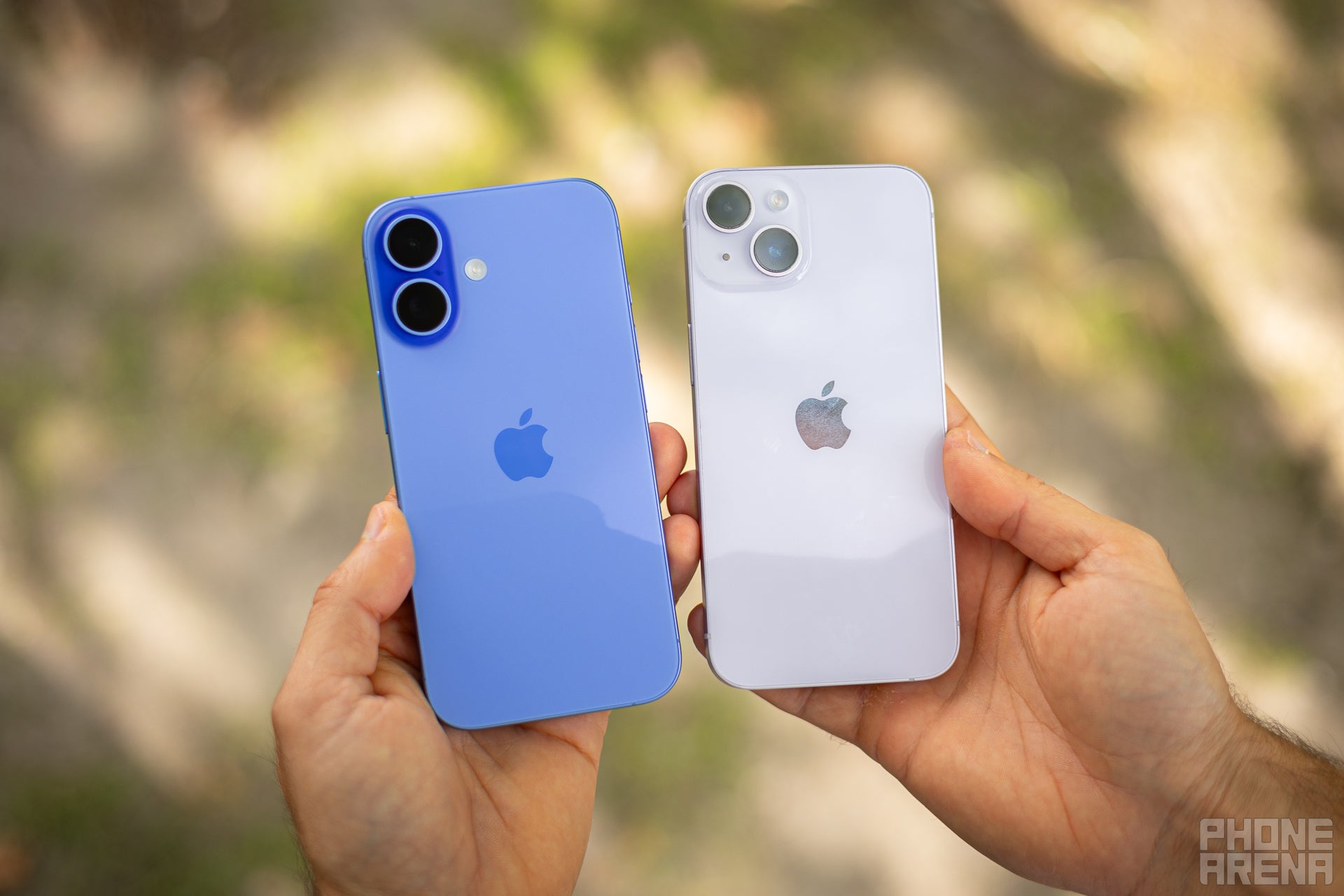
The iPhone gets some of its color back with the 16 series, but you don't have a yellow or a red version (Image by PhoneArena)
The shape and size of the iPhone 16 are very similar to the iPhone 14. Both are 6.1-inch phones with flat sides, an aluminum frame and a glass front and back.
On the back, you still have a dual camera system, but it's a vertical one instead of a diagonal one. And on the front, you get tougher Ceramic Shield on the 16 model.
There are some bigger tweaks and changes, though. You get two new physical buttons on the iPhone 16. The Mute switch from the iPhone 14 gets replaced by a programmable Action button, and both are located on the top left above the volume keys.
You also get a new Camera Control on the right side, below the power key. This button works with camera apps only, both Apple's native one and third-party apps. We like it as a simpler way to fire up the camera and take a picture or start recording video. However the advanced trackpad-like functionality is definitely fiddly and seems more like a gimmick. After all, it's easier to control many of these settings on the larger screen.
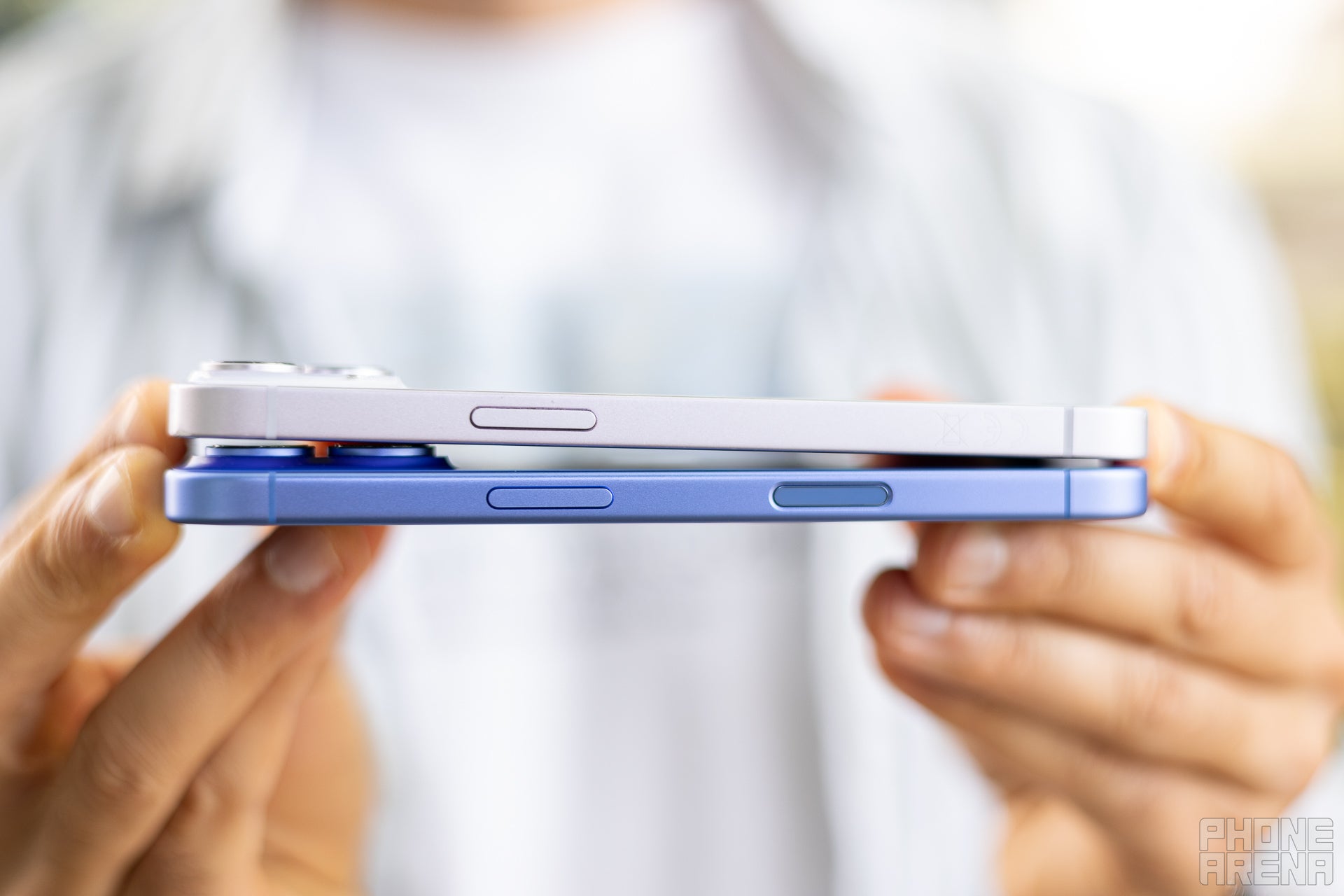
Camera Control on the iPhone 16 in the bottom (Image by PhoneArena)
We should also mention the USB-C port on the iPhone 16, a welcome change from the Lightning port on the iPhone 14.
Both models also have IP68 water and dust protection.
- Also read: iPhone 16 colors
As for screen quality, you have the same 6.1-inch OLED screen on both phones. The iPhone 14 goes to a peak brightness of 1,200 nits, while the iPhone 16 can theoretically hit 2,000 nits.
PhoneArena Display Measurements
In our testing, we measure using an all-white screen and the numbers we get are more modest: 841 nits peak brightness on the iPhone 14 and a bit over 1,000 nits on the iPhone 16.
A very cool improvement is that the screen on the iPhone 16 can now drop to just 1 nit, perfect for bedtime use.
We already mentioned the big disappointment – the iPhone 16 is not getting 120Hz ProMotion, so both the iPhone 16 and 14 will share the same old 60Hz screen tech.
Rumors say ProMotion will finally arrive on the vanilla iPhone 17 model in 2025, if that's any consolation.
Performance and Software
New iPhone, new chip
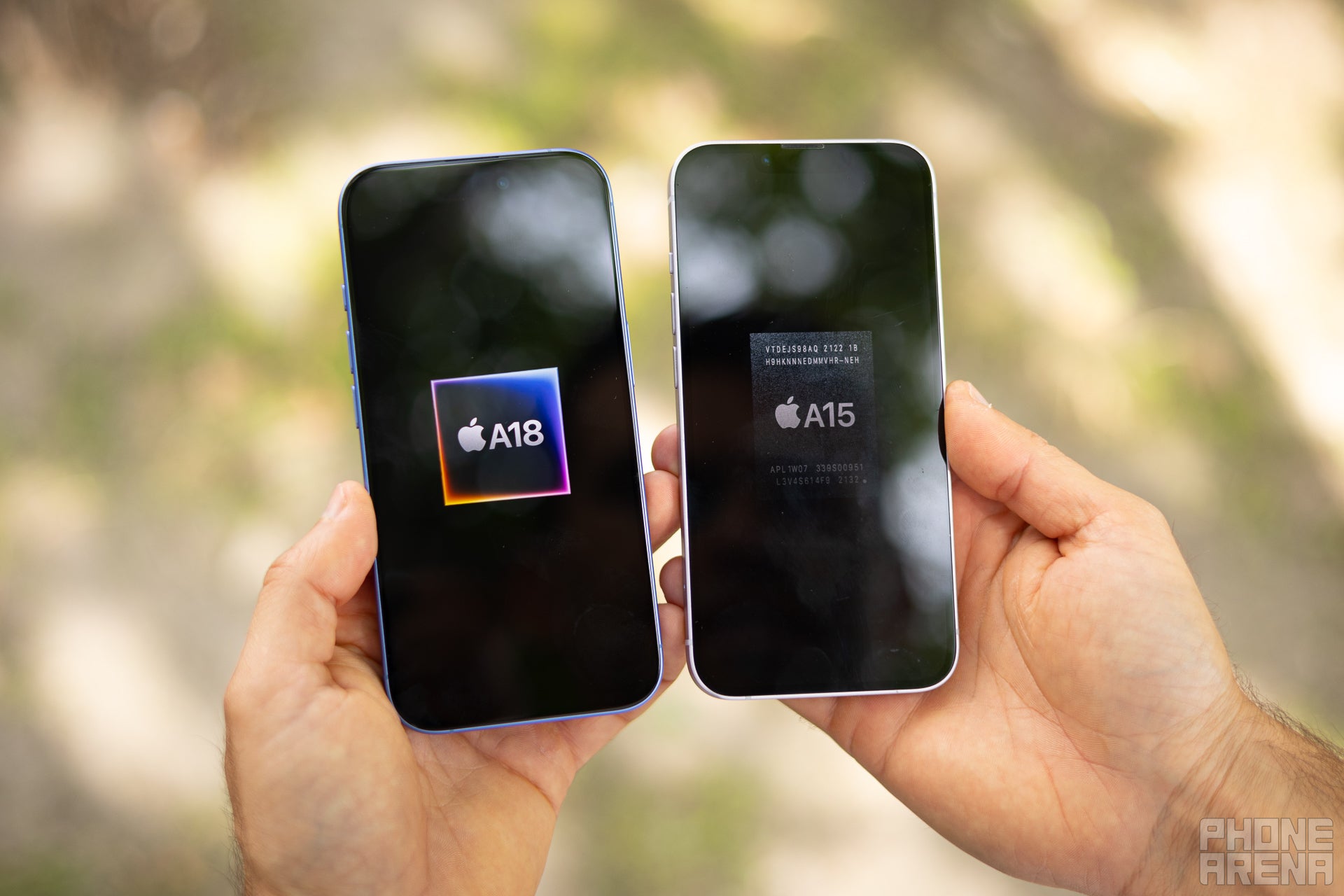
The iPhone 16 is a big jump in performance (Image by PhoneArena)
Coming two years after the iPhone 14, the iPhone 16 naturally gets a newer and faster processor.
While the iPhone 14 runs on the A15 Bionic chip built on 5nm technology, the iPhone 16 is the first vanilla iPhone to get a 3nm chipset, the Apple A18. Even flagship Android phones do not use that cutting edge manufacturing process yet, so that's definitely a good thing for the new iPhone and a big jump.
In benchmarks, we see more than 50% jump in performance for CPU speeds, and a smaller but still noticeable improvement in gaming loads.
Notice that the iPhone 16 Pro models get a slightly faster Apple A18 Pro chip.
More importantly, the iPhone 16 comes with 8GB of RAM, up from 6GB on the iPhone 14.
So the iPhone 16 supports Apple Intelligence (AI) features, while the iPhone 14 does NOT support it.
That's an important distinction and probably your biggest reason to upgrade.
However, remember that Apple Intelligence is coming in stages to the iPhone 16.
With iOS 18.1, we already have notification summaries, writing tools and Clean Up in Photos to remove unwanted objects.
More Apple Intelligence features arrived in early December with iOS 18.2. Those include the ChatGPT support in Siri, Visual Intelligence, Image Playground, Genmoji and Image Wand.
Finally, the third stage of the roll out will be iOS 18.3 around March 2025, and that will deliver the all-new and smarter Siri assistant.
- Also read: iPhone 16 Apple Intelligence features
There are no changes to the storage options on the iPhone 16, so you can still choose between 128GB, 256GB or 512GB capacities.
The iPhone 16 also likely uses the newer modem (Snapdragon X70), compared to the iPhone 14 (Snapdragon X65), so reception should be a bit improved in certain problematic areas.
Camera
Spatial Videos and Photos, baby
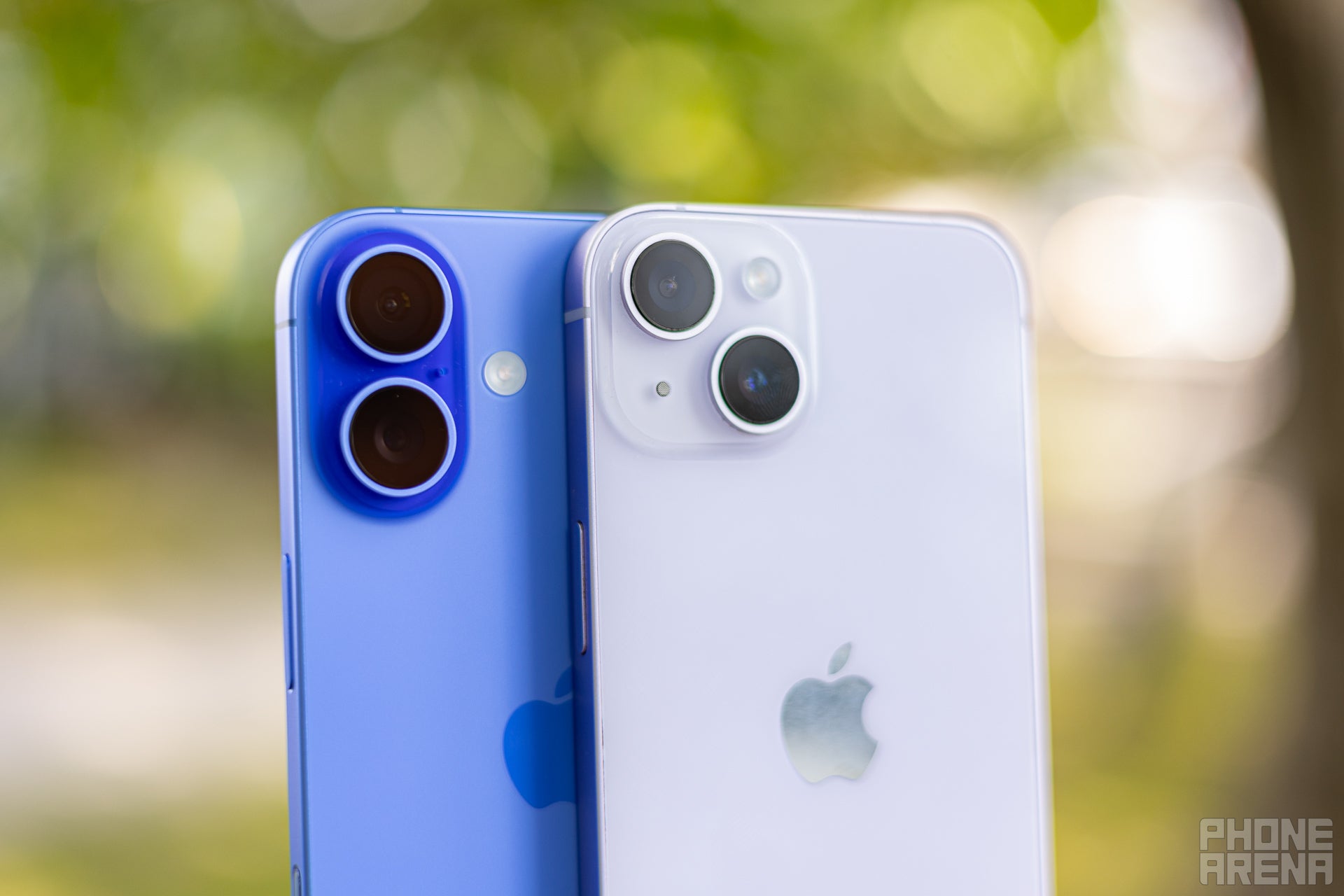
The 48MP main camera and support for macro mode on the ultra-wide camera are welcome additions (Image by PhoneArena)
The iPhone 16 comes with a new vertical styling for the camera, but it's still a dual camera system, with a main and an ultrawide lens.
PhoneArena Camera Score Results:
In our PhoneArena Camera Score, the iPhone 16 scores a big improvement in zoom quality as it now supports 2X sensor crop on that new 48MP main camera, but it also gets noticeable improvements in other areas too.
This new 48MP sensor provides more detail and better low light performance, plus many of the overprocessing issues from the iPhone 14 are gone.
The changes to the ultra-wide camera are more subtle, as both phones share a similar 12MP sensor, with the same 13mm field of view and f/2.2 aperture. What you do get on the iPhone 16 is support for macro photos with the ultra-wide snapper.
And of course, you get a bunch of AI editing features on the iPhone 16, such as the "Clean Up" tool in Photos, which comes with iOS 18.1.
We also love the new Photographic Styles on the iPhone 16 which are much more powerful. And while previously you could not change a photographic style after the capture, you can now do this, so this opens lots more possibilities for photo editing.
As for video quality, there are no major changes here, as 4K60 remains the maximum available quality.
However, you get the new Audio Mix feature on the iPhone 16 and it's a big step up. You can isolate voices far better with it, and if you do any sort of creative work with this camera, you will appreciate this addition.
The vertical iPhone 16 cameras also enable Spatial Video and Spatial Photos, which you can then play on the Apple Vision Pro. This seems like something far out in the future currently, as not many people own the headset yet, but it's nice having the option to record 3D videos.
- Also read: iPhone 16 camera: All the upgrades
Audio Quality and Haptics
Apple tweaks and improves the audio quality from iPhones every year, but there are no ground-breaking changes to the loudspeaker quality in the iPhone 16.
And as for haptics, they have been top-notch ever since the Taptic Engine on the iPhone 6s! Again, no significant changes in this area either.
Battery Life and Charging
Longer battery life and MagSafe gets faster
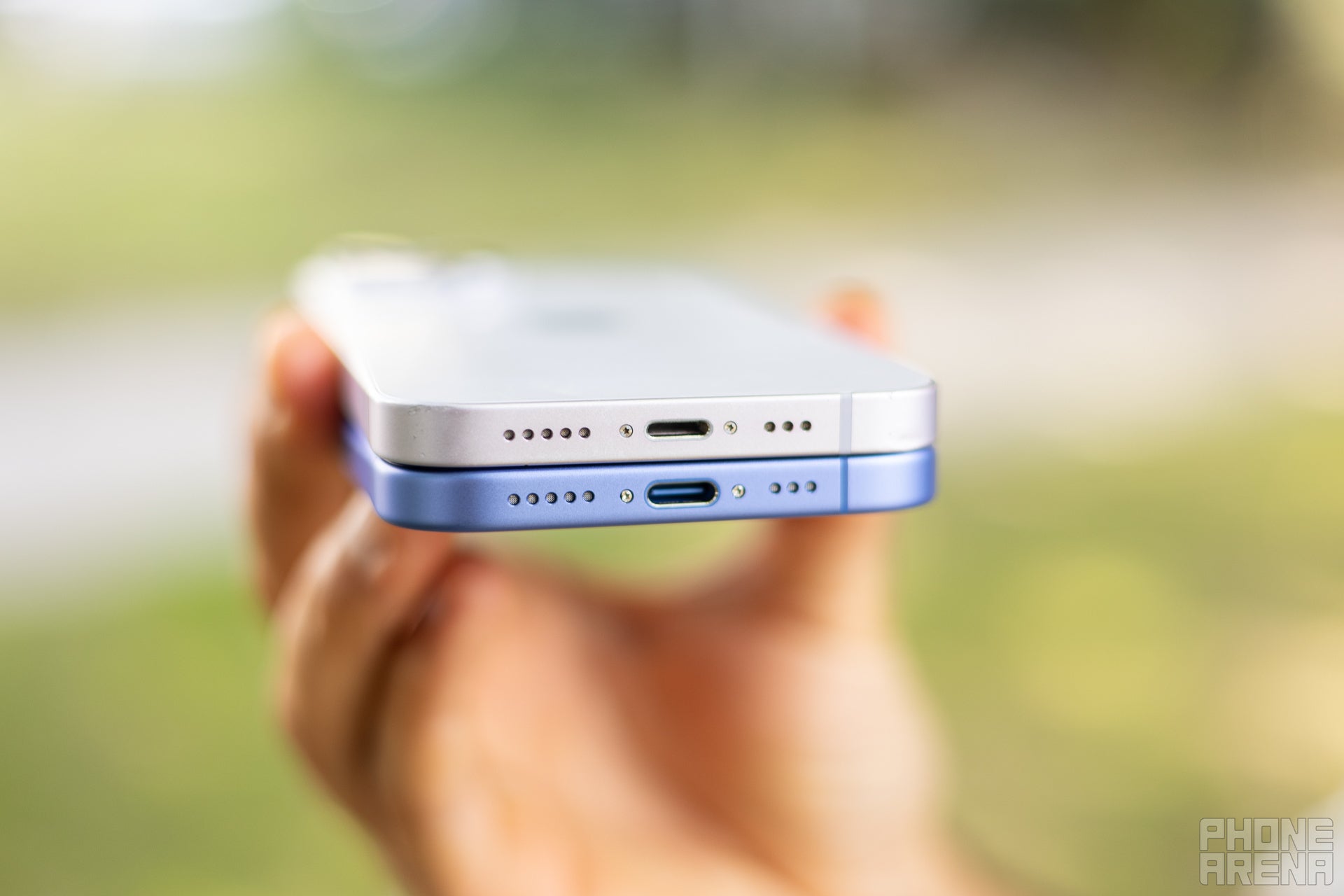
The iPhone 16 comes with a 3,561 mAh battery, some 8% bigger than the 3,279 mAh battery capacity on the iPhone 14.
Apple rates the iPhone 14 for 20 hours of video playback and 80 hours of audio playback, while for the iPhone 16 those numbers stand at 22 hours of video and 80 hours of audio.
In other words, battery life improves ever so slightly.
We had to verify those numbers, of course, so here are the results of our in-house battery tests.
We are getting mixed results in our testing. On our web browsing test which we perform over a Wi-Fi connection, the iPhone 16 lasted nearly 17 hours, more than an hour better than the iPhone 14. However, for YouTube video streaming the iPhone 14 scored an hour longer.
Wired charging speed remains the same at the rather slow 20W.
MagSafe wireless charging, however, runs at 25W maximum, up from 15W before. Know that you need a new MagSafe charger and a power brick that outputs at least 30W to get the benefit of this.
If you have this setup, expect a 50% top up in 30 minutes with MagSafe, an upgrade from the roughly 30% charge you get with the 15W speeds before.
- Also read: iPhone 16 Battery and charging
Specs Comparison
And here is a high-level look of the iPhone 16 vs iPhone 14 specs:
| iPhone 16 | iPhone 14 |
|---|---|
| 147.6 x 71.6 x 7.8 mm | 146.7 x 71.5 x 7.80 mm |
| 170 g | 172 g |
| 6.1-inch OLED 60Hz | 6.1-inch OLED 60Hz |
| Apple A18 3nm | Apple A15 Bionic 5nm |
| 8/128GB for $800 8/256GB for $900 8/512GB for $1,100 | 6/128GB 6/256GB 6/512GB |
| 48MP main, f/1.6 12MP ultra-wide, f/2.2 12MP front | 12MP main, f/1.5 12MP ultra-wide, f/2.2 12MP front |
| 3,561 mAh | 3,279 mAh |
| 20W wired 25W wireless | 20W wired 15W wireless |
Should you upgrade?
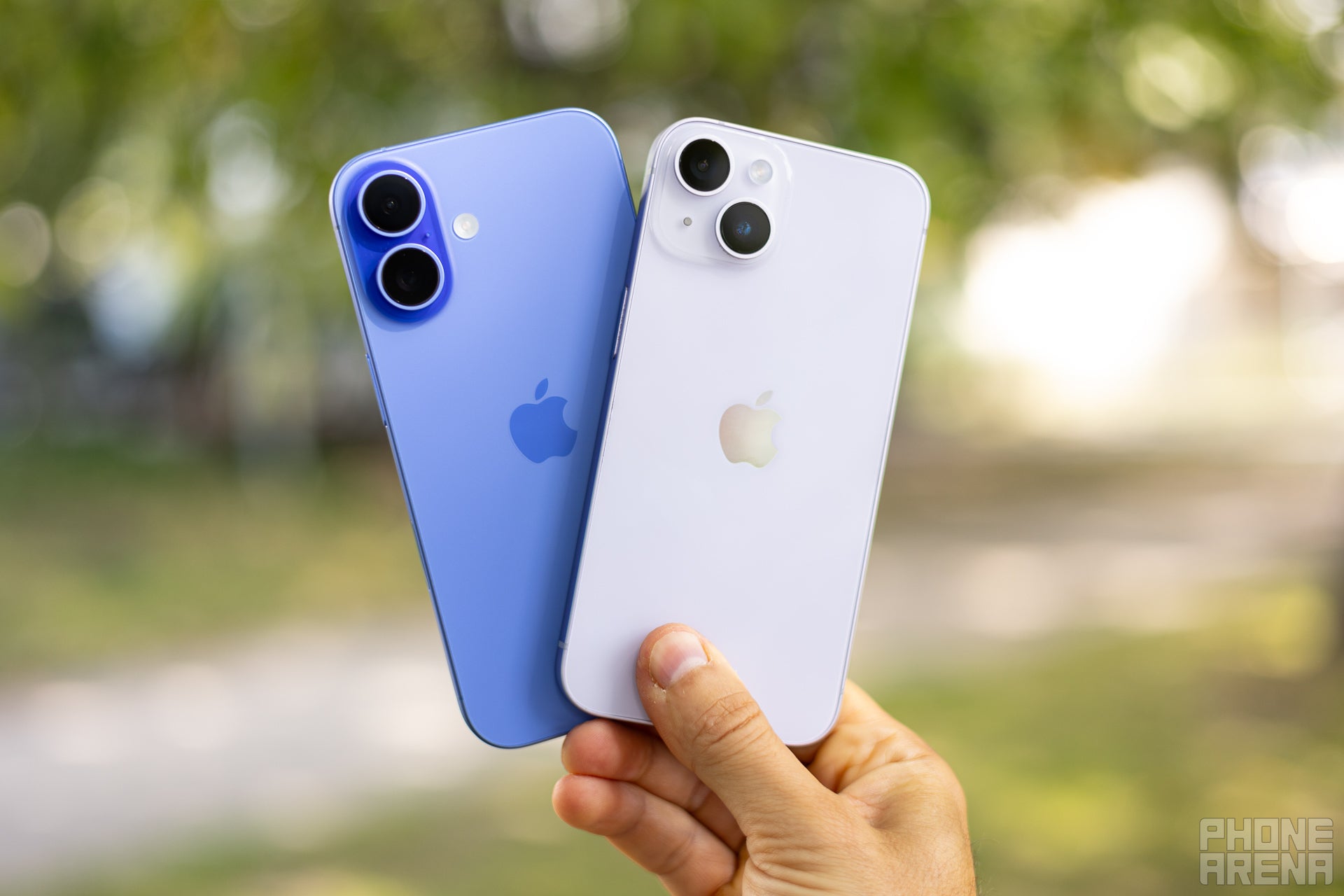
The iPhone 16 is a nice upgrade over the iPhone 14 (Image by PhoneArena)
So... is the iPhone 16 a worthy upgrade?
We say: a hesitant yes.
iPhone 14 users are getting a big jump in performance, two new buttons, a few useful camera features, and an improved screen. The upgrade to USB-C and the 48MP main camera are also big upgrades.
The big ticket item ProMotion, however, has not arrived to the iPhone 16. It might finally appear on the iPhone 17 next year, as per rumors, and that would ultimately make it a far better phone.
Apple bets that the Apple Intelligence support on the iPhone 16 will convince users to upgrade, but many of those new features such as the new Siri will only arrive next year. And we suspect Apple will need at least a year to catch up with Google on AI.
Follow us on Google News

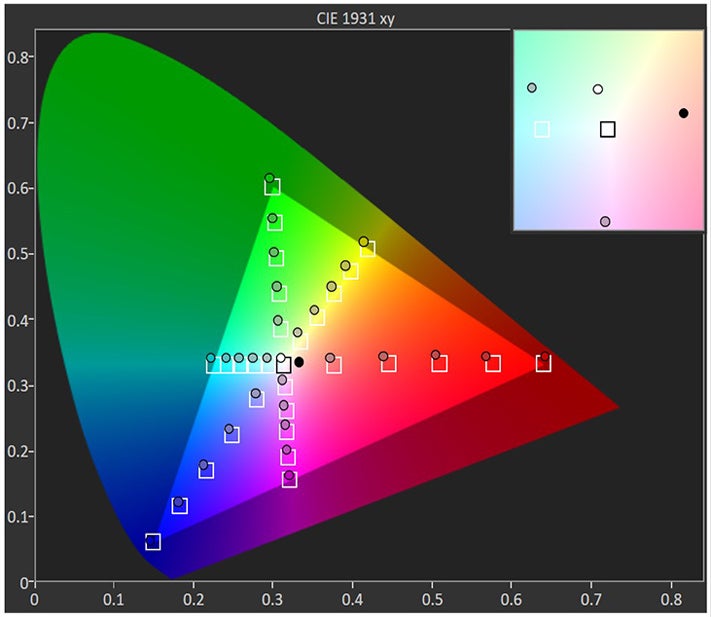
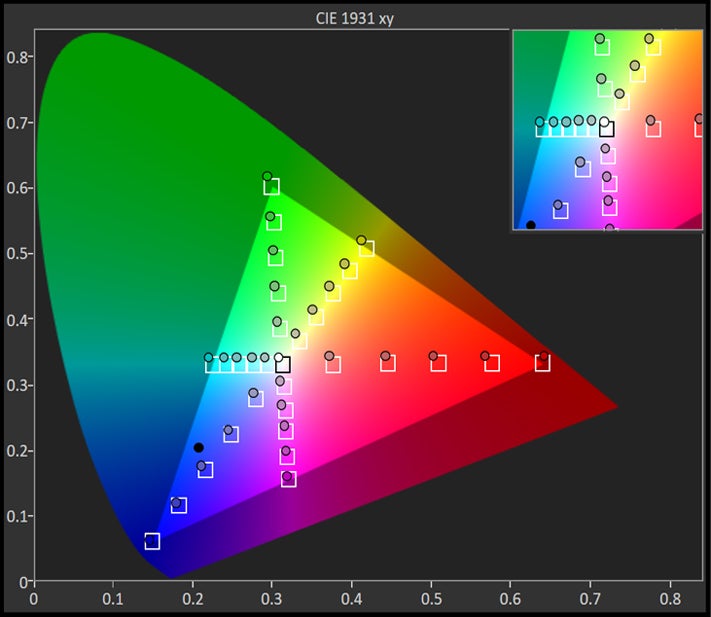























Things that are NOT allowed:
To help keep our community safe and free from spam, we apply temporary limits to newly created accounts: